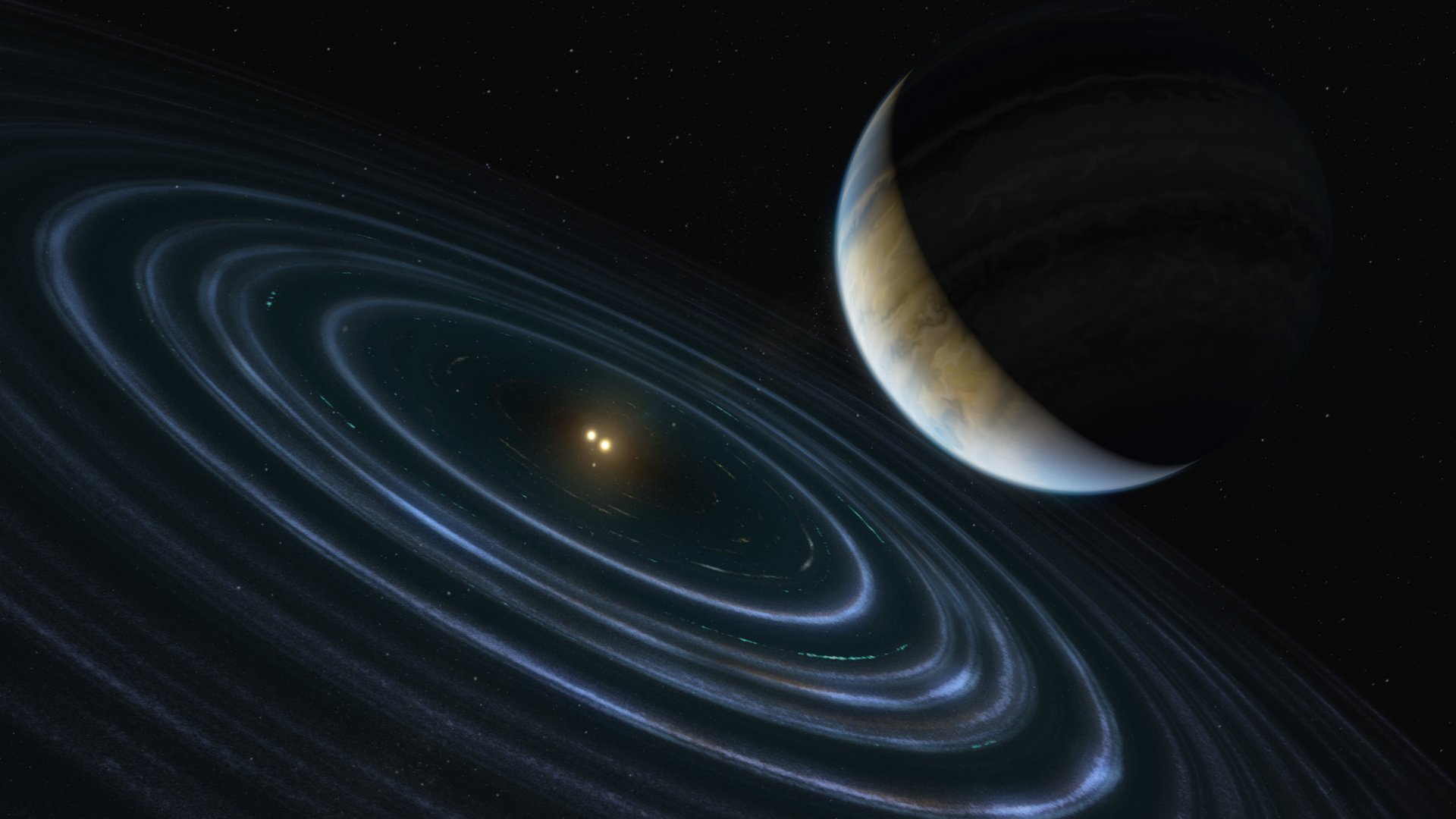Scientists step closer to learning more about Planet Nine
Add Axios as your preferred source to
see more of our stories on Google.

Artist's illustration of the alien planet. Image: NASA/ESA/M. Kornmesser
A planet spotted 336 light-years from Earth could help scientists learn more about whether there is a large "Planet Nine" or "Planet X" lurking in the outskirts of our solar system.
Why it matters: Scientists have been hunting for the hypothetical Planet Nine for years. The new characterization of this alien planet by the Hubble Space Telescope shows that worlds like the theoretical planet can exist in other solar systems.
Details: The exoplanet is "very widely separated from its host stars on an eccentric and highly misaligned orbit, just like the prediction for Planet Nine," Meiji Nguyen, an author of the new study about the planet in the Astronomical Journal said in a statement.
- "This begs the question of how these planets formed and evolved to end up in their current configuration."
- The double star system the planet was found in is relatively young, at 15 million years old, suggesting these types of worlds could form early in the histories of their solar systems.
- Scientists suggest the planet may have ended up in its strange orbit because it was flung far from its stars at some point in the past.
The big picture: Researchers think Planet Nine might exist in our solar system due to the strange orbits of a handful of objects past Neptune in what's known as the Kuiper belt.
- Advocates of the theory suggest the gravity of a large planet in a strange orbit may be shaping how these other bodies move.
- The exoplanet studied by the Hubble could serve as a good model for what Planet Nine's early history in our solar system could have looked like.
- "It's as if we have a time machine for our own planetary system going back 4.6 billion years to see what may have happened when our young solar system was dynamically active and everything was being jostled around and rearranged," Paul Kalas, another author of the study, said in the statement.
